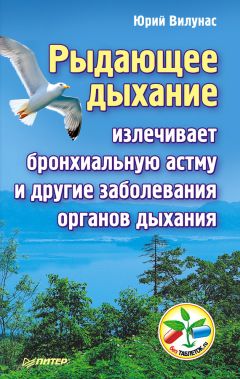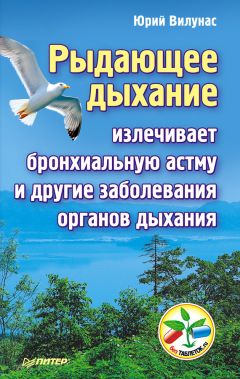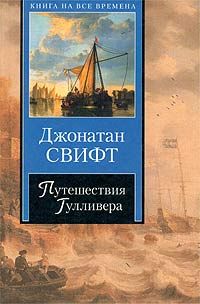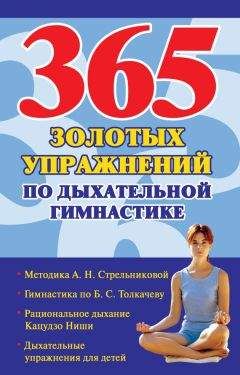Джонатан Свифт - Английский язык с Джонатаном Свифтом. Путешествия Гулливера
I got up and went immediately. Orders were given to the crowd to clear the way for me. The moon was shining, so I was able to get to the palace quickly without stepping on any people.
They already had ladders at the walls of the apartment (к стенам покоев уже приставили лестницы). They also had plenty of buckets (также имелось много ведер; plenty — /из/обилие; множество), but the water was some distance away (но вода находилась на некотором удалении = довольно далеко). These buckets were about the size of a large thimble (ведра эти были величиной с большой наперсток). The people gave them to me as fast as they could (люди подавали их мне так быстро, как /только/ могли), but the flames were so strong (но пламя было так сильно) that they did little good (что толку от них было мало). I could easily have put out the fire with my coat (я мог бы легко затушить огонь/пожар своим кафтаном), but unfortunately I had left it behind in my hurry (но, к несчастью, я второпях его не надел: «оставил /дома/»; behind — сзади, позади). The situation was desperate (положение было отчаянное). The beautiful palace would surely have burnt to the ground (прекрасный дворец, несомненно, сгорел бы дотла: «до земли/основания»; beauty — красота) if I had not suddenly had an idea (если бы мне внезапно не пришла в голову /одна удачная/ мысль).
already [Ll'redI], easily ['JzIlI], beautiful ['bjHtIfVl]
They already had ladders at the walls of the apartment. They also had plenty of buckets, but the water was some distance away. These buckets were about the size of a large thimble. The people gave them to me as fast as they could, but the flames were so strong that they did little good. I could easily have put out the fire with my coat, but unfortunately I had left it behind in my hurry. The situation was desperate. The beautiful palace would surely have burnt to the ground if I had not suddenly had an idea.
During the evening (в продолжение вечера) I had been drinking a most delicious wine (я пил превосходнейшее вино; delicious — восхитительный, прелестный; очень вкусный, бесподобный). By the luckiest chance in the world I had not yet urinated (по счастливейшей случайности я еще /ни разу/ не помочился), so I relieved myself in such quantities (и потому сделал это /теперь/ в таком количестве; to relieve — облегчать, ослаблять; освобождать /от чего-л./) that in three minutes the fire was completely out (что в /какие-нибудь/ три минуты огонь был совершенно потушен; out — вне, снаружи; указывает на окончание, завершение, исчезновение чего-л.).
evening ['JvnIN], delicious [dI'lISqs], quantity ['kwOntItI]
During the evening I had been drinking a most delicious wine. By the luckiest chance in the world I had not yet urinated, so I relieved myself in such quantities that in three minutes the fire was completely out.
It was now daylight (между тем стало совсем светло; daylight — дневной свет; день, светлое время суток) and I returned to the house (и я возвратился домой) without waiting to be thanked by the Emperor (не ожидая благодарности от императора). Although I had done His Majesty a great service (хотя я оказал его величеству большую услугу), I didn't know what he would say to the way (я не знал, как он отнесется к способу: «что он скажет по поводу способа») in which I had performed it (каким она была оказана). It was against the law of the kingdom to urinate in the palace grounds (мочиться на территории дворца было нарушением законов государства: «было против закона»). I was comforted a little later on to hear (позднее меня немного успокоило сообщение; to comfort — подбадривать; утешать, успокаивать) that His Majesty would try to have me pardoned (/о том/, что его величество постарается сделать так, чтобы меня помиловали; to pardon — извинять, прощать; миловать).
urinate ['jVqrIneIt], comfort ['kAmfqt], hear [hIq]
It was now daylight and I returned to the house without waiting to be thanked by the Emperor. Although I had done His Majesty a great service, I didn't know what he would say to the way in which I had performed it. It was against the law of the kingdom to urinate in the palace grounds. I was comforted a little later on to hear that His Majesty would try to have me pardoned.
I was told, privately (мне конфиденциально сообщили), that the Empress was horrified at what I had done (что императрица была возмущена тем, что я сделал = моим поступком; to horrify — ужасать; шокировать, возмущать) and had moved to the side of the courtyard furthest away (и переселилась в апартаменты, расположенные в самой отдаленной части внутреннего двора: «в часть внутреннего двора, наиболее удаленную»). She had also decided (кроме того, она решила) that the damaged buildings should never be repaired for her use (не ремонтировать/восстанавливать для себя поврежденные здания: «что поврежденные здания не должны ремонтироваться для ее пользования»; never — никогда; /зд./ для усиления отрицания). She vowed to get revenge (она поклялась отомстить /мне/; revenge — месть, мщение).
horrify ['hOrIfaI], vow [vaV], repair [rI'pFq]
I was told, privately, that the Empress was horrified at what I had done and had moved to the side of the courtyard furthest away. She had also decided that the damaged buildings should never be repaired for her use. She vowed to get revenge.
6
The people of Lilliput are just under six inches tall (жители Лилипутии ростом немного ниже шести дюймов). All animals, plants and trees are in exact proportion (все животные, растения и деревья точно соразмерны /этой величине/; proportion — пропорция; /правильное/ соотношение; соразмерность, пропорциональность). For instance, the tallest horses and cows are between four and five inches in height (например, самые высокие = крупные лошади и коровы имеют от четырех до пяти дюймов в вышину; between — между). The sheep are about an inch and a half tall (овцы — около полутора дюймов). The largest birds are about the size of small ones in our part of the world (самые большие птицы имеют размеры маленьких = как маленькие в нашей части света) and the smallest are almost impossible to see (а самых мелких почти невозможно увидеть).
animal ['xnImql], plant [plRnt], height [haIt]
The people of Lilliput are just under six inches tall. All animals, plants and trees are in exact proportion. For instance, the tallest horses and cows are between four and five inches in height. The sheep are about an inch and a half tall. The largest birds are about the size of small ones in our part of the world and the smallest are almost impossible to see.
The people are well educated (люди хорошо образованы), but their manner of writing is very peculiar (но их манера письма очень своеобразна/необычна). It is neither from left to right like the Europeans (они пишут не /так/ как европейцы — слева направо: «она не слева направо, как /у/…»), nor right to left like the Arabs (и не /так/ как арабы — справа налево; neither… nor… — ни... ни…; не…, также не …; не … и не…). Nor is it from top to bottom like the Chinese (и не /так/ как китайцы — сверху вниз). It is from one corner of the paper to the other, like ladies in England (/но/ как английские дамы — от одного угла страницы к другому; paper — бумага; лист бумаги).
peculiar [pI'kjHlIq], neither ['naIDq], Chinese ["CaI'nJz]
The people are well educated, but their manner of writing is very peculiar. It is neither from left to right like the Europeans, nor right to left like the Arabs. Nor is it from top to bottom like the Chinese. It is from one corner of the paper to the other, like ladies in England.
They bury their dead head downwards (они хоронят умерших /кладя тело/ головою вниз). They believe that in a thousand years time the dead will rise again (они верят, что через тысячу лет мертвые воскреснут; to rise — восходить, вставать, подниматься; воскресать). During this time the earth (за это время земля) — which they believe is flat (которую они считают плоской) — will turn upside down (перевернется вверх дном: «верхом вниз»; upside — верхняя сторона, верхняя часть). So when the dead rise again (поэтому, когда мертвые воскреснут), they will be standing on their feet (они окажутся стоящими /прямо/ на ногах). The most educated people agree that this idea is absurd (наиболее образованные люди признают, что это представление = верование нелепо), but the practice still continues (но обычай сохраняется до сих пор; to continue — продолжать/ся/).
bury ['berI], absurd [qb'sWd], practice ['prxktIs]
They bury their dead head downwards. They believe that in a thousand years time the dead will rise again. During this time the earth (which they believe is flat) will turn upside down. So when the dead rise again, they will be standing on their feet. The most educated people agree that this idea is absurd, but the practice still continues.
There are some very peculiar laws and customs in this Empire (в этой империи существуют некоторые весьма своеобразные законы и обычаи). It's not surprising (не удивительно = нет ничего удивительного /в том/) that a person is put on trial (что человека привлекают к суду; trial — испытание, проба; судебный процесс, суд) when he or she is accused of breaking the law (если он или она обвиняется в нарушении закона). However, if the person is found innocent (однако, если человек /этот/ будет признан невиновным; to find — находить; убеждаться, приходить к заключению, признавать), the accuser is immediately put to death (/то/ обвинитель немедленно подвергается казни), and the accused person is generously compensated (а обвиненный /им/ человек получает щедрое вознаграждение; to compensate — возмещать /убытки/; компенсировать; расплачиваться, вознаграждать /за нелегкий труд, лишения и т. п./) out of the accuser's goods and land (/взыскиваемое/ с движимого и недвижимого имущества: «вещей и земли/землевладений» обвинителя; goods — вещи, имущество) for the hardship they have suffered (за испытанные им тяготы/лишения; hard — жесткий, твердый; трудный; тяжелый, тягостный /о времени/; they часто употребляется вместо he когда речь идет о человеке вообще, независимо от пола; to suffer — страдать; испытывать, претерпевать). The Emperor also gives the innocent person some public mark of favour (кроме того, император жалует невиновного каким-нибудь публичным знаком /своего/ благоволения; to give — дать, передать; /по/дарить; даровать, жаловать) and declares his innocence throughout the city (и объявляет о его невиновности всему городу; throughout — через, по всей площади, длине /чего-л./).
innocent ['Inqs(q)nt], generously ['GenqrqslI], favour ['feIvq]
There are some very peculiar laws and customs in this Empire. It's not surprising that a person is put on trial when he or she is accused of breaking the law. However, if the person is found innocent, the accuser is immediately put to death, and the accused person is generously compensated out of the accuser's goods and land for the hardship they have suffered. The Emperor also gives the innocent person some public mark of favour and declares his innocence throughout the city.
The people of Lilliput believe (лилипуты считают) that good government is based on reward and punishment (что хорошее государственное управление основывается на поощрении и наказании; government — руководство, /у/правление; правительство; государство). Anyone who can prove (всякий, кто сможет доказать) that he has kept the laws of the country for six years (что он соблюдал законы страны в течение шести лет) can claim certain privileges (может = имеет право претендовать на определенные/известные привилегии; to claim — требовать; предъявлять требования; заявлять о своих правах на что-л.) and a sum of money from a special fund (и денежную сумму из особого фонда). They thought it was wrong (они = лилипуты сочли неправильным/несправедливым) that our laws were enforced by punishment only (/то/, что у нас соблюдение законов обеспечивается только наказанием = страхом наказания; to enforce — принуждать, вынуждать /к чему-л./; обязывать; обеспечивать соблюдение, исполнение; force — сила; насилие, принуждение), without any mention of reward (а о награде нигде и речи не ведется: «без всякого упоминания о награде/поощрении»).




